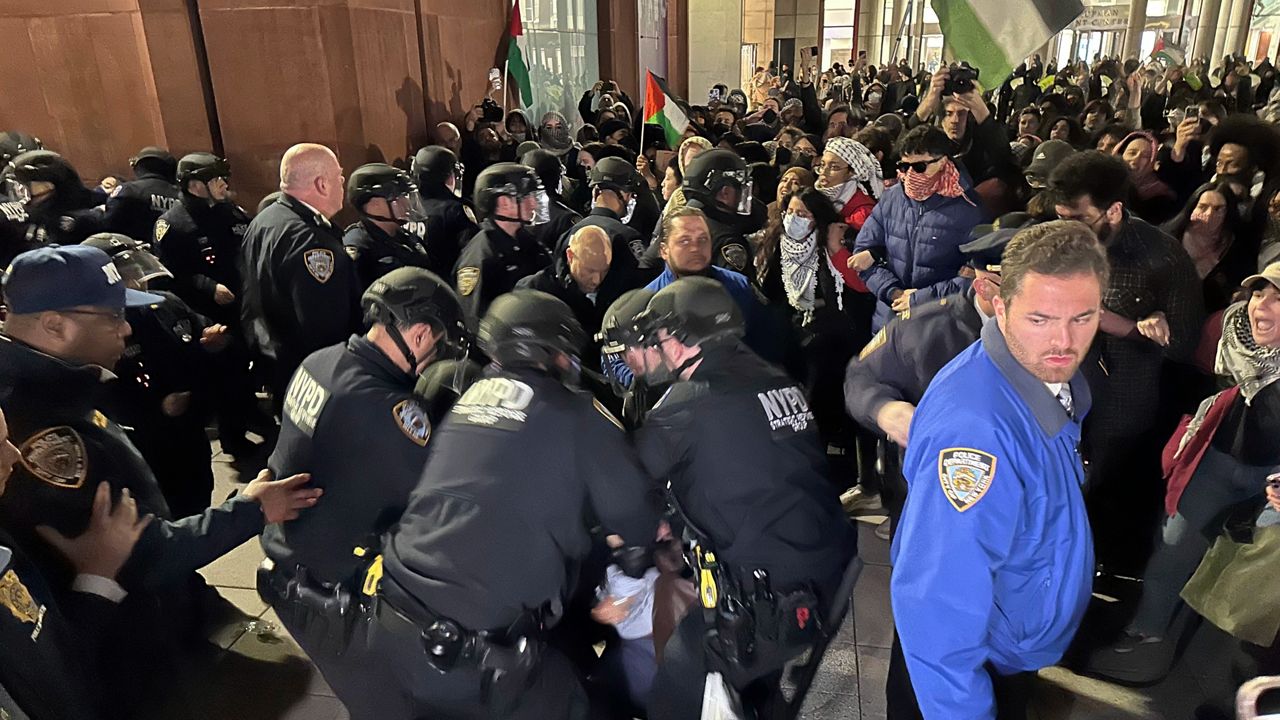Ever since President Donald Trump announced his intention to eliminate the federal Department of Education, parent Lori Podvesker says she’s had trouble sleeping.
What You Need To Know
- Ever since President Donald Trump announced his intention to eliminate the federal Department of Education, parent Lori Podvesker worries her son Jack — and other kids and young adults with disabilities — have the most to lose
- While the Department of Education does not run America’s schools or make curriculum decisions, it does play a significant role
- At her Senate confirmation hearing, Education Secretary Linda McMahon said it's not the president’s goal to defund those programs, “only to have them operate more efficiently"
- But even if the department remains, staffing there is already in the process of being slashed by half, meaning if there’s an issue regarding special education and compliance, it could take that much longer before the staff that are left are able to address it
“This is the stuff that keeps me up at night,” Podvesker said.
She worries her son Jack — and other kids and young adults with disabilities — have the most to lose if the department is officially dismantled.
Jack has an intellectual disability, is on the autism spectrum, has cerebral palsy and is mostly nonverbal.
Podvesker, who lives in Brooklyn, New York, also works at IncludeNYC, a nonprofit group dedicated to students with disabilities.
“A lot of these kids are not getting what they need now,” Podvesker said, getting emotional at times. “And it really frightens me.”
While the Department of Education does not run America’s schools or make curriculum decisions, it does play a significant role.
“Especially for kids who come from some marginalized groups,” said Mike Petrilli with the Fordham Institute, a think tank that advocates for more rigorous academic standards.
“So that includes kids with disabilities and includes kids growing up in poverty. The two biggest grant programs are for those populations.”
And Randi Weingarten, president of the American Federation of Teachers, a labor union, points out that 95% of the kids with disabilities in the United States receive what is called IDEA funds. IDEA stands for the Individuals with Disabilities Education Act, which provides special education services to the more than 7 million public school kids with a disability in the U.S.
“The kids that need the most help are going to be hurt the worst,” Weingarten said.
At her Senate confirmation hearing, Education Secretary Linda McMahon said it's not the president’s goal to defund those programs, “only to have them operate more efficiently."
If the DOE is eliminated, the administration says, that funding would be handled by the Department of Health and Human Services.
“I think about the cultural implications and the messaging that goes along with all of this,” Podvesker said.
The messaging, she says while getting choked up, implies that “kids like Jack — sorry, it’s upsetting — kids like Jack don't matter.”
“I fear that kids like mine will go back to institutions," she added.
Ultimately, since the Department of Education was enacted by an act of Congress in 1979, Congress will need to sign off on eliminating the agency. Podvesker says she’s “cynically optimistic” that they’ll preserve it.
But even if the department remains, staffing there is already in the process of being slashed by half, meaning if there’s an issue regarding special education and compliance, it could take that much longer before the staff that are left are able to address it.







